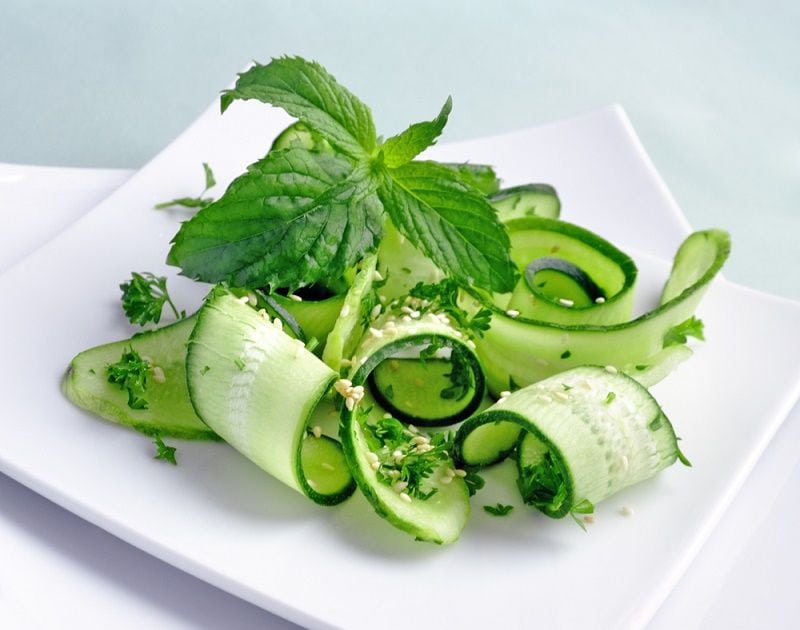Increased weight gain, which is associated with the increased amount of fat, sugar, and processed foods in many of our diets, has also been linked with health issues such as cardiac disease, stroke, and mobility problems. Weight gain and health problems associated with obesity are on the rise, and healthy low calorie foods do not seem to be a priority for the average person.
Weight gain and loss are really a matter of math – calorie weight loss happens when you expend more calories than you take in. In other words, the number of calories that you eat per day must be less than the amount you “spend” in exercise, energy, and living in general. This is the objective in any effective weight loss program – to have a negative calorie weight loss balance.
A pound of body weight is equivalent to 3500 calories, meaning you would have to have a deficit of 3500 calories to lose one pound. For instance, if you normally eat 1800 calories per day and decrease your intake to 1500 while increasing the amount of exercise you get each day it will take approximately 7 days to lose one pound. This is assuming that you are burning approximately 350 calories a day during your workout routine for four days. (300 calories per day times 7 days equals 2100 calories saved. Remaining 1400 calories divided by 4 days of exercise burning 350 calories per day equals one pound of weight lost).
Weight loss is a mathematical equation that works when you apply it to your calorie weight loss program. And whether you decide you’re going to lose weight by consuming more low calorie foods, or you’d rather burn more calories through exercise, keep in mind that a negative calorie weight loss deficit doesn’t happen in the course of one day.
On the other hand, gaining two or three pounds in one day doesn’t happen either unless it is water retention. When the scales show that you have put on weight this quickly, it is the result of the body conserving water at the cellular level, or water weight gain – it is not a body fat gain. This can happen to the body during times of stress, or to a woman during her period.
And by the way, you can naturally, and easily, lose the water by actually increasing the amount of water you are drinking. By drinking additional water, the body is given the ideal amount, and no longer retains anything extra.
Unfortunately, all of this is easier said than done for most people. The negative calorie diet might be a sound method of weight loss, but factors such as eating disorders, health problems, emotional eating, pregnancy, nursing, and age (under 18) are all factors that will impact the ability to maintain a negative calorie weight loss program.
Whether you try fad diets, a specific diet such as some of the more popular ones you see advertised, a diet that is undertaken at home without specific commercial guidelines, or even weight loss drugs (do your homework on these), all of these factors can cause a calorie weight loss journey to be unsuccessful.
Negative Calorie Foods
Because of the difficulties associated with weight loss, many know the agony of searching for “magic” weight loss pills, food, or even weight loss surgeries to help improve the success rate of calorie weight loss.
A common theory that has been tossed about for years is the notion that there are certain foods that have a negative impact on calories because these foods supposedly take more calories to convert them to energy than they have stored in them.
Fruits and vegetables such as asparagus, broccoli, beets, cabbage, cauliflower, celery, cucumber, carrot, garlic, papaya, spinach, turnip, zucchini, apples, oranges, lettuce, grapefruit, pineapples, strawberries and raspberries are all supposed foods with negative calories.
This is not to imply that the foods have no calories at all. All foods have calories. But the theory behind negative calorie foods is that, because they supply lots of nutrients and because of the extra calories your body has to burn just to digest them and to absorb the nutrients from them (more calories than is stored in the foods themselves), you can eat as much of them as you like without gaining weight. If this is in fact true, your body would actually be dipping into its fat stores for the extra energy.
However, with a quick glance around the animal kingdom you might notice that most herbivores aren’t exactly wasting away from eating nothing but foods with ‘negative calories’. Do these supposed negative calorie weight loss foods consumed by animals have calories? Of course they do! And do you think those foods have more or less calories than other foods? They naturally have fewer calories, and yet the animals who consume them do not appear to be losing weight as a result.
So Can You Lose Weight Eating Negative Calorie Foods?
More research definitely needs to be done before we can say with absolute certainty that negative calorie foods do in fact do what they are reported to do. However, there are those who swear by this diet, claiming that you can in fact lose weight more effectively, and keep it off more successfully if you follow the general negative calorie weight loss program along with a regular exercise routine. The added benefits of exercise will be more toned muscles and increased energy!
But will it work for you? If the negative calorie foods promoted in the negative calorie diet are lower in calories, and at the same time more healthy and nutritious than the diet you are accustomed to, there is no way you can go wrong by trying it for a few weeks and see if it works for you.



